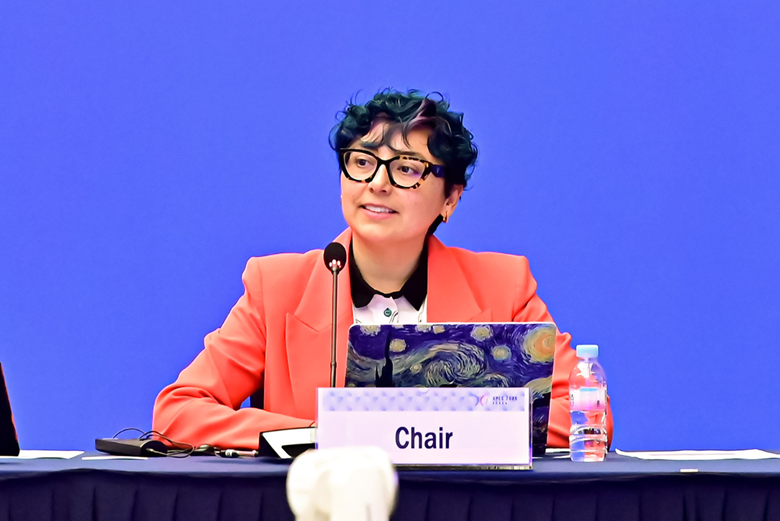
APEC member economies are strengthening coordinated action to close persistent gender gaps across trade, innovation, and the care economy, following two days of policy discussions in Incheon under the Policy Partnership on Women and the Economy (PPWE).
Opening the meeting, PPWE Chair Anita Peña acknowledged the forum's progress since its establishment in 2011 and highlighted the need for swift, coordinated action of translating commitments into concrete action.
"The barriers to women's economic participation are not abstract, they affect productivity, innovation, and growth across our economies," Peña said.
The discussions were informed by the newly released 2025 APEC Women and the Economy Dashboard, which shows that while there has been gradual progress in areas such as financial inclusion and digital access, core indicators like leadership representation, labor force participation, and unpaid caregiving have seen little change.
Across APEC, women hold just 22 percent of ministerial posts and 28 percent of parliamentary seats, and continue to shoulder a disproportionate share of unpaid care work. The data underscores the urgency of moving beyond commitments toward coordinated and measurable action.
"Women's full economic participation fuels growth, drives innovation, and strengthens resilience," said Rhea Crisologo Hernando, analyst with the APEC Policy Support Unit.
"When we remove barriers to capital, skills, and leadership, we are investing in more competitive, more dynamic economies. APEC's collective commitment must translate into policies and partnerships that deliver these gains across the region."
Delegates shared strategies for addressing systemic barriers, from eliminating workplace discrimination and violence to creating enabling conditions for women in emerging fields such as STEM, artificial intelligence, and the green economy.
The meeting also emphasized strengthening the care economy, recognizing that policies and investments in caregiving infrastructure are essential for enabling women's participation in the labor force.
"We already have standards that acknowledge the barriers women face and the solutions to transform those conditions of inequality," Peña added, referencing APEC's La Serena Roadmap for Women and Inclusive Growth and Gender Equality Structural Reform Principles as key policy frameworks. She stressed the need for these commitments to be operationalized across all sectors, supported by data and joint action with other APEC fora, including SMEs, health, science & technology, intellectual property, and the APEC Business Advisory Council.
The meeting closed with calls to intensify work on transitioning women from the informal to the formal economy, recognizing and measuring unpaid care work, and embedding gender equality principles into structural reforms.
"Today's session reminds us that we are not starting from zero," Peña concluded. "We have a strong history of work and ideas that help us understand why the economic gaps faced by women persist, and how we can close them."
The outcomes from PPWE's discussions will feed into the High-Level Policy Dialogue on Women and the Economy (HLPDWE) and the Women and the Economy Forum (WEF) to be held tomorrow, 12 August, in Incheon, which will be chaired by Shin Youngsook, Acting Minister of Gender Equality and Family of the Republic of Korea.






